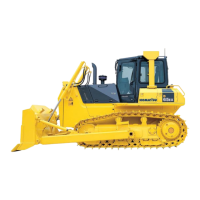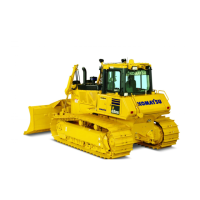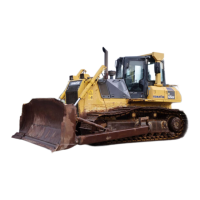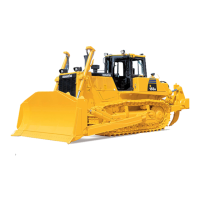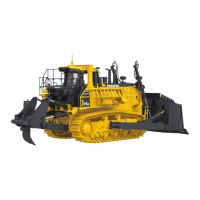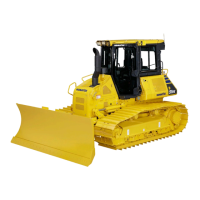PRECAUTIONS FOR MAINTENENCE SAFETY
2-32
PRECAUTION WITH HIGH-PRESSURE OIL
The hydraulic system is always under internal pressure. When inspecting or replacing piping or hoses, always
check that the pressure in the hydraulic circuit has been released. If the circuit is still under pressure, it will lead to
serious injury or property damage, so always do as follows.
● For the releasing procedure of the internal pressure, see "PROCEDURE FOR RELEASING INTERNAL
PRESSURE OF HYDRAULIC SYSTEM (PAGE 4-39)". Do not inspect or replace any part while the internal
pressure is applied.
● If there is any leakage from the piping or hoses, the surrounding area will be wet, so check for cracks in the
piping and hoses and for swelling in the hoses.
When carry out inspection, wear safety glasses and leather gloves.
● There is a hazard that high-pressure oil leaking from small
holes may penetrate your skin or cause blindness if it con-
tacts your eyes directly. If you are hit by a jet of high-pres-
sure oil and suffer injury to your skin or eyes, wash the
place with clean water, and consult a doctor immediately
for medical attention.
HANDLING HIGH-PRESSURE HOSES
● If oil or fuel leaks from high-pressure hoses, it may cause fire or defective operation, which may lead to serious
injury or property damage. If any loose bolts are found, stop work and tighten to the specified torque. If any
damaged hoses are found, stop operations immediately and contact your Komatsu distributor.
Replace the hose if any of the following problems are found.
● Damaged or leaking hydraulic fitting.
● Frayed or cut covering or exposed reinforcement layer of wire.
● Covering swollen in places.
● Twisted or crushed movable portion.
● Foreign material embedded in covering.
WASTE MATERIAL
To prevent pollution, pay careful attention to the method of disposing of waste materials.
● Always put oil drained from your machine in containers.
Never drain oil directly onto the ground or dump into the
sewage system, rivers, the sea, or lakes.
● Obey appropriate laws and regulations when disposing of
harmful objects such as oil, fuel, coolant, solvent, filters,
and batteries.
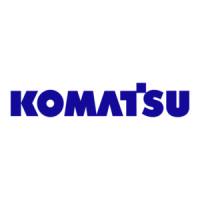
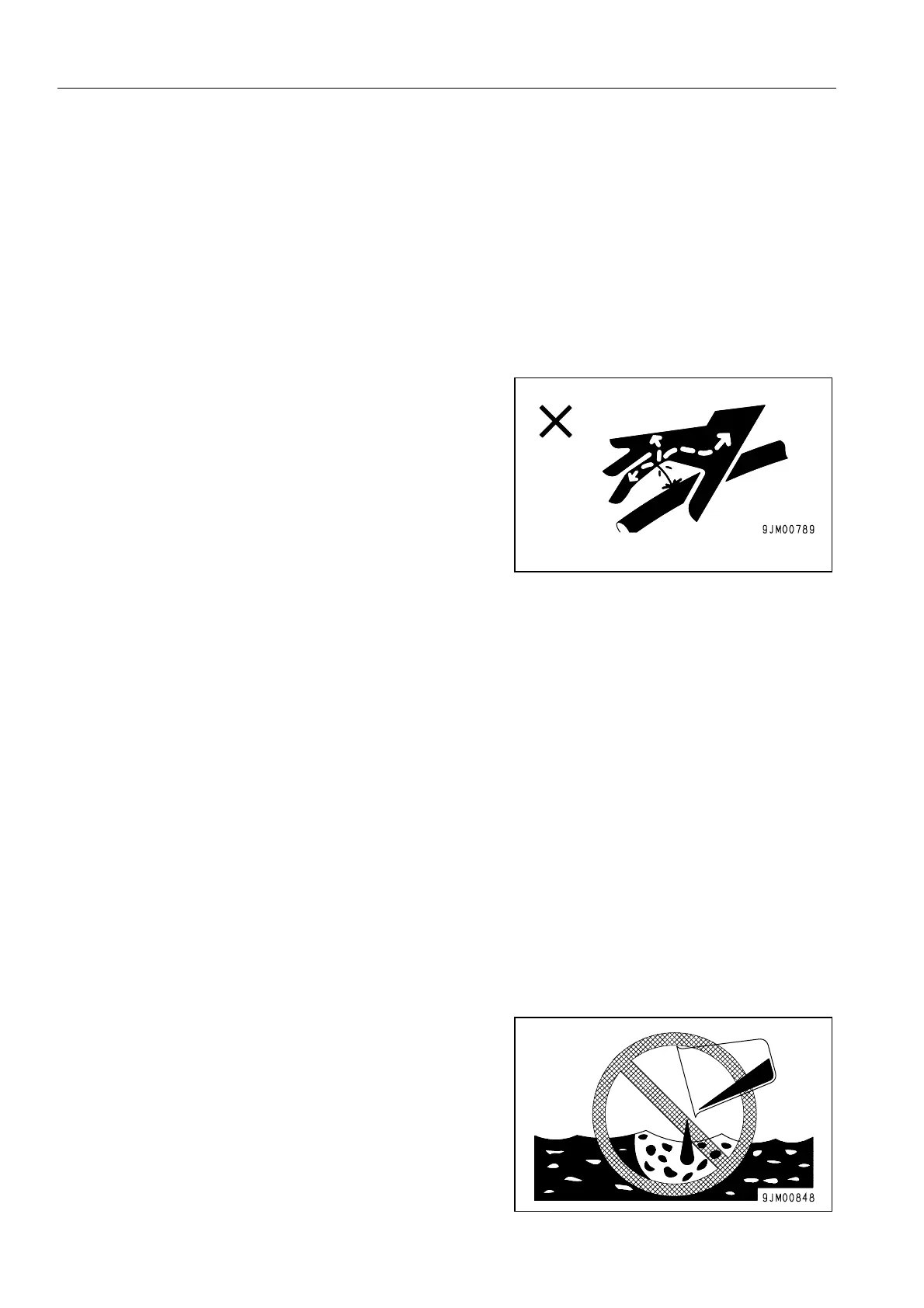